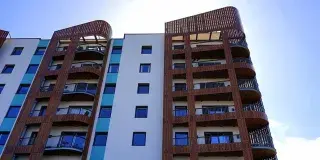The Horizontal Property Law is a fundamental legal framework that regulates the coexistence and administration of properties under horizontal property regime in Spain; that is, those private properties that are located, for example, in the same building. In this sense, this legislation establishes the rights and obligations of homeowners and businesses within the same real estate complex, as well as the rules for managing common areas. In Spain, this regulation directly affects millions of property communities.
Content and main characteristics of the Horizontal Property Law
The Horizontal Property Law, regulated in Article 396 and following of the Spanish Civil Code, addresses various aspects concerning all homeowners or property owners who share space:
- Common and private elements: the regulation clearly defines which parts of the building are for the exclusive use of each owner (private elements) and which are for the common use of all (common elements or areas), such as hallways, stairs, elevators, etc.
- Coexistence rules: it regulates aspects such as the use of common areas, payment of community expenses, and maintenance or execution of works in the building, among others.
- Governance bodies: the Horizontal Property Law also establishes the existence of various internal governing bodies responsible for decision-making and management in the building, such as the Owners' Meeting, the community president, or the administrator, among others.
- Legal procedures: the Horizontal Property Law also includes the procedures to be followed for the convening and holding of owners' meetings, adoption of agreements, challenging decisions, and the sanctioning regime.
What should homeowners or future buyers consider?
For homeowners of properties under horizontal property regime, it is crucial to know and comply with the law that regulates the management of this type of property to avoid conflicts and legal issues. Some important aspects to consider are:
- Payment of community expenses: the Horizontal Property Law states that owners are obliged to contribute financially to the maintenance and conservation of common elements of the building, as well as to other community-related expenses, such as insurance or services.
- Participation in community life: the regulation encourages attending owners' meetings and proactively participating in decision-making affecting the building.
- Respect for coexistence rules: it is essential to respect the rules established in the homeowners' community to ensure harmonious coexistence among neighbors. This includes respecting quiet hours, proper use of common facilities, and compliance with current regulations, including those established by the Horizontal Property Law.
- Maintenance and conservation of the property: owners must collaborate in the maintenance and conservation of the building, carrying out necessary repairs in their homes and contributing financially to improvement works required in common elements.
Complying with the Horizontal Property Law is not only a legal obligation for owners but also entails a series of benefits for them and, in general, for all members of the community. Beyond fostering a peaceful coexistence model and establishing an equal level of responsibility among all owners, compliance with this regulation by all parties ensures the appreciation of the property.
Well-managed and maintained buildings tend to maintain or increase their value in the real estate market, benefiting all community members. Likewise, respecting the Horizontal Property Law provides legal certainty to property owners, as it avoids potential legal conflicts arising from non-compliance with regulations.
Owners and future buyers of properties under horizontal property regime should familiarize themselves with this law and comply with its provisions to ensure the proper functioning of the community. Respect for regulations and collaboration among neighbors are key to the smooth operation of any homeowners' community.
















